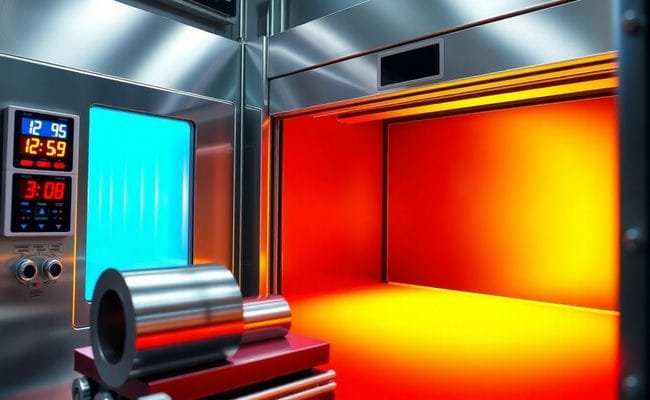Ever notice your shower leaving your skin dry or your hair dull? That’s hard water, the sneaky culprit loaded with calcium and magnesium. It creeps into your plumbing, leaving limescale like a crusty calling card. A water softener system is your superhero, swooping in to tackle hardness with ion exchange or other clever tricks. Unlike a basic filter, it swaps those pesky minerals for sodium or potassium, giving you soft water that’s kinder to your appliances and laundry. Why let hard water bully your household? From residential to commercial spaces, softening systems offer benefits like smoother hygiene and longer-lasting heaters. Curious how this magic works? Let’s dive into the world of water treatment and explore its perks!
Why Does Hard Water Feel Like a Sneaky Villain in Your Home?
How Do Softener Systems Actually Work?
Picture a softener as a mineral bouncer at a nightclub. It uses resin beads in a tank to grab heavy metals like manganese or iron, swapping them for sodium via ion exchange. This regeneration process, fueled by salt in a brine tank, keeps the system humming. Some systems are salt-based, while others go salt-free, acting like a descaler to prevent scale without chemicals. No salt options are great for eco-friendly folks or those with septic concerns—is discharge bad for your system? Not usually, if managed right! Whether you’re in a city or rural area, these solutions improve water quality. Want to know how much they cost? Let’s unpack that next!
Also Visit: Exploring Temperature Ranges in Powder Coating Ovens
What’s the Price Tag on Softening Your Water?
Curious about the cost of a water softener? It’s like buying a car—depends on the model! Basic systems for small homes or apartments might run $500-$1,500, while whole house setups for large families can hit $3,000 or more. Installation adds another $200-$1,000, especially if you’re not a DIY guru. Professional installs ensure your plumbing plays nice with the bypass valve. Brands like Culligan or Aqua offer top rated options, but price varies by capacity and efficiency. Maintenance tips? Keep that salt stocked and check the brine tank monthly. Worried about long-term savings? Softer water cuts soap costs and extends appliance life. Isn’t that worth the investment? Let’s explore sizing next!

How Do You Pick the Best Softener for Your Household?
Choosing the best water softener feels like picking the perfect pizza—everyone’s got different tastes! Sizing matters: a tiny home needs less capacity than a multi-family condominium. Measure your water usage and hardness—test kits are your friend! Salt-based softeners shine for high hardness, while magnetic or electronic alternatives suit low pressure systems. Check user reviews and expert recommendations for brands like Culligan. Comparison shopping? Look at warranty, customer support, and certifications for industry standards. Portable or compact units work for RV camping or vacation homes. Ask yourself: what’s my water like? City or private wells? Knowing this ensures your softener fits like a glove. Ready to buy? Let’s talk installation!
Also Visit: WPC 2025 The Best And Ultimate Guide About WPC 2025
Installing a Softener: Is It a DIY Dream or a Pro Job?
So, you’re ready to install a water softener—but should you grab a wrench or call someone who installs these daily? DIY installation can save bucks if you’re handy with plumbing. Follow an installation guide, connect the bypass valve, and set the system near your water heater. But here’s the kicker: one wrong move, and your kitchen or bathroom pipes could throw a tantrum. Professional installation, often offered by brands like Aqua, ensures compliance with regulations. Cost for pros? Around $300-$800, depending on your home’s setup. New construction or renovations make installing easier, but retrofitting older homes? Trickier. Why risk a flood? Get it right, and your softener hums for years!
How Long Do Softeners Last, and How Do You Maintain Them?
Wondering how long water softeners stick around? A good system can last 10-20 years, like a trusty old truck, with proper maintenance. Regeneration cycles need salt refills—check the brine tank monthly. Troubleshooting issues like low pressure? Clean the resin or reset the valve. Maintenance tips: flush the system yearly and test water quality with analysis kits. Repair or replacement? Only if the resin degrades or leaks spring up. Homes near me with well water might need extra testing for iron or manganese. No salt systems cut maintenance but may lack efficiency. Keep it sustainable—soft water saves energy by easing HVAC or boiler strain. Isn’t that a win? Let’s check applications!
Also Visit: Mega Personal Login 2023 How To Sign In Mega Personal Account
Where Can Softener Systems Shine Beyond the Home?
Water softeners aren’t just for household kitchens or bathrooms—they’re MVPs in tons of places! Commercial spots like hotels, restaurants, or laundromats rely on soft water for spot-free dishwashers and crisp laundry. Hospitals and schools need it for hygiene and comfort. Even factories in manufacturing or food processing use softeners to protect boilers and steam systems. Agriculture? Irrigation and livestock thrive with soft water. Greenhouses, hydroponics, and aquaponics love it for gardening precision. Spas, pools, or hot tubs? Limescale prevention keeps them sparkling. Military bases or government buildings? Same deal. Softener systems boost efficiency everywhere, from urban high-rise buildings to rural farms. Where else could they work? Let’s explore niche uses!
Niche Uses: From RV Camping to Fish Tanks
Ever thought about water softeners for RV camping? Portable units make showers dreamy on the road. Boats and marine setups use compact softeners to fight limescale in tight spaces. Aquariums or fish tanks? Soft water keeps pet care stress-free for your finned friends. Ponds or fountains in landscaping? Softening stops crusty buildup. Car washing? Say goodbye to water spots! Vacation rentals or temporary housing benefit from low maintenance systems. Even disaster relief or emergency shelters use softeners for clean drinking water. Off-grid or solar-powered homes? No salt options fit perfectly. Remote locations with extreme climates? Softener systems adapt. Isn’t it wild how versatile they are? Let’s talk health benefits!
Health and Wellness: How Soft Water Pampers You
Soft water isn’t just about appliances—it’s a hug for your body! Hard water can leave your skin itchy and your hair like straw, but softening systems fix that fast. Showering feels like a spa day, boosting hygiene and comfort. Wellness win: softer laundry is gentler on sensitive skin. Worried about drinking water? Most softeners play nice with purifiers for tasty sips. Health perks extend to pets—soft water makes grooming easier. Eco-friendly bonus: you’ll use less soap, saving cash and the planet. Long-term savings? Think fewer repairs for heaters or dishwashers. Why let hard water harsh your vibe? Soft water’s a game-changer—let’s compare systems!
Softener Vs Filter Vs Purifier: What’s the Deal?
Confused about softener vs filter vs purifier? Think of it like coffee: softeners are decaf, filters are drip, and purifiers are espresso. Water softeners tackle hardness, swapping calcium for sodium. Filters catch dirt or chemicals but don’t soften. Purifiers? They zap bacteria for drinking water perfection. No salt descalers or magnetic systems are alternatives, but they’re less potent for high hardness. Whole house softeners cover all taps, while point-of-use units hit specific spots like the kitchen. Municipal water might need less filtration, but private wells often demand both softening and purifying. Comparison shopping? Check user reviews for efficiency. Got well water? Test it first. Ready for smart tech? Let’s go there!
Smart Integration: Softener Systems Get Techy
Imagine controlling your water softener with voice commands—pretty cool, right? Smart systems with IoT devices let you monitor usage via an app. Alexa or Google Home integration? Yup, it’s a thing! Automation tracks regeneration and salt levels, so you’re never caught off guard. Remote monitoring suits vacation homes or rentals. High-rise or gated communities love these for convenience. Eco-friendly perk: smart softeners optimize energy and water conservation. Certifications ensure environmental impact is low. Suburban or urban homes with new construction? Perfect fit. Cost? A bit higher, but the short-term investment pays off in savings. Expert recommendations? Go for brands with warranty and support. Wanna set or program one? It’s a breeze!
Applications Galore: From Laundromats to Laboratories
Water softeners are like Swiss Army knives—they fit everywhere! Laundromats get brighter clothes and happier appliances. Restaurants serve spot-free glasses thanks to soft water. Hospitals and nursing homes prioritize hygiene with softeners. Laboratories and pharmaceuticals need soft water for precise testing. Beverage production? Soft water enhances flavor. Factories and cooling towers avoid scale with industrial softeners. Retirement communities or assisted living? Comfort is key. Dormitories or public facilities save on maintenance. Modular or mobile homes? Compact systems work great. Coastal areas or humid climates? Softeners fight corrosion. Property value or resale value? A softener boosts both. Where else can they shine? Let’s wrap up with tips!
Final Words: Making Your Softener a Lifelong Pal
So, you’re sold on a water softener—how do you make it last? Set and program it right—most systems have easy controls. Test your water yearly for reports on hardness or metals. Troubleshooting? Check the brine tank or reset the system. No salt systems suit dry climates or low-rise buildings. Shared wells or community systems? Pick a high capacity unit. Cold weather? Insulate pipes. Inland areas with high altitude? Adjust pressure. Upgrades during renovations? Add a softener. Inspections love soft water for plumbing health. Why use one? It’s all about savings, comfort, and green living. Where to buy? Check top rated brands online or locally. Your home deserves this!
 Zulro Zulro The Info Hunter
Zulro Zulro The Info Hunter


